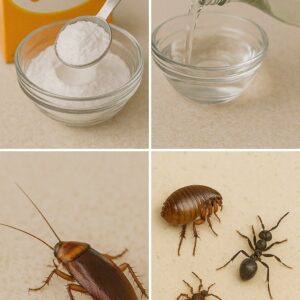Raw honey is not just a sweet addition to your tea or peanut butter toast; it has several health benefits worth exploring. Below are some of the potential advantages of incorporating raw honey into your diet. However, it’s essential to approach these claims with a balanced perspective.
1. Natural Wound Treatment
Raw honey has been used for centuries as a treatment for wounds due to its natural antibacterial properties. Its sticky texture can help create a barrier to protect the wound. However, it’s important to note that not all honey is suitable for treating wounds; medicinal-grade honey, particularly Manuka honey, is recommended for its higher efficacy.
2. May Aid Sleep
Some people believe that consuming a spoonful of raw honey before bed can promote better sleep. Honey may cause a slight increase in insulin, which can lead to the release of serotonin, a precursor to melatonin, the hormone that regulates sleep. However, more research is needed to confirm its effectiveness universally.
3. Rehydration with a Honey and Citrus Electrolyte Drink
Add honey to a natural electrolyte drink to reap the energy-boosting benefits in the natural sweetener. Try this recipe: Combine 1/2 cup orange juice, 1/2 cup lemon juice, 2 cups filtered water, 2 to 4 tablespoons of honey and 1/8 teaspoon of unrefined salt in a blender and mix until honey is completely combined.
4. Potential Anti-Fungal Properties
Honey, particularly Manuka honey, has demonstrated some antifungal properties, which may help in treating certain skin infections. However, it should not be relied upon solely for treating serious infections.
5. Possible Relief for Seasonal Allergies
There is anecdotal evidence that local honey may help alleviate seasonal allergies by exposing the body to small amounts of pollen. However, scientific support for this claim is limited, and it should not replace allergy medications when needed.
6. May Support Gum Health
Honey has antibacterial properties, which may help in maintaining oral health. Applying honey to the gums can potentially help with minor gum issues, but it should not replace professional dental care.
7. Sore Throat Relief
Honey is widely known for its soothing effect on sore throats. Its thick texture coats the throat, providing relief and reducing irritation.
8. Cancer Treatment Claims
While some studies suggest honey may have beneficial properties due to its antioxidants and anti-inflammatory effects, there is insufficient scientific evidence to support its use as a treatment for cancer. More research is needed in this area.
9. Skin and Scalp Benefits
Applying diluted honey to the skin may help with minor irritations and dryness. It has moisturizing properties and can be beneficial in skincare routines, though it should be used with caution for those with sensitive skin.
10. Sunburn Relief
Honey may provide soothing effects for minor sunburns due to its moisturizing and anti-inflammatory properties. However, it is advisable to use medicinal-grade honey for better results.
11. Digestive Health Support
Raw honey contains probiotics, which may contribute to gut health. While it may help with mild digestive issues, it is not a substitute for medical treatment for serious gastrointestinal conditions.
12. Potential Aid for Herpes
The antibacterial properties of honey may offer some relief for cold sores, but it should not be seen as a primary treatment for herpes.
13. Energy and Immune Support
Honey provides quick energy due to its natural sugars. It may also support immune function by introducing beneficial compounds, but it should be considered as part of a balanced diet.
Conclusion
While raw honey has several potential health benefits, many of the claims require further research for validation. It is best to use honey as a sweetener or a supplementary health aid rather than a primary treatment for medical conditions. Always consult with a healthcare professional before relying on honey for health-related purposes.





